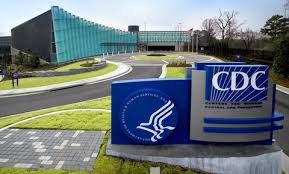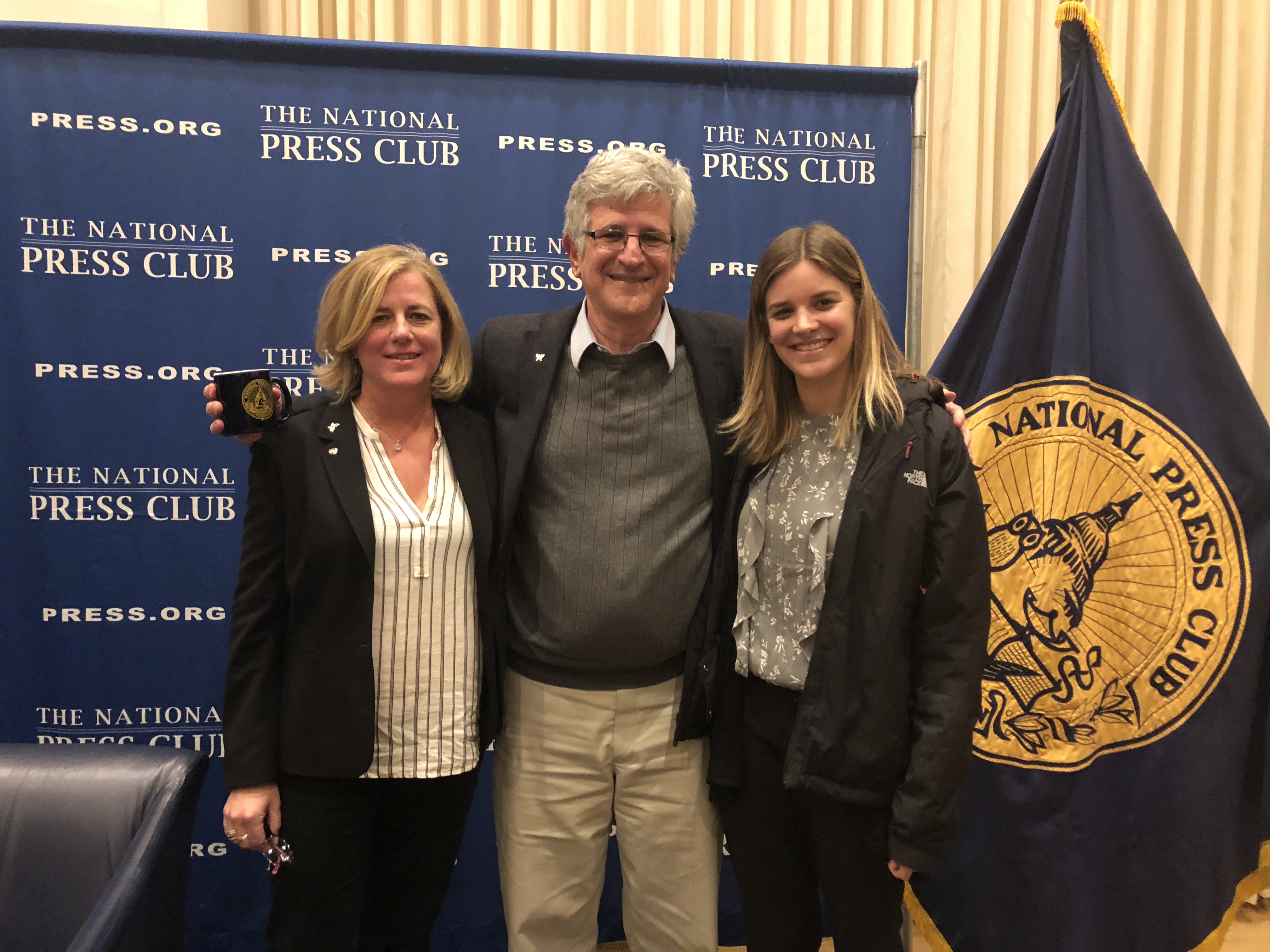Vaccine Skeptics Lash Out at CDC Advisory Committee Meeting
By Amy Pisani, MS, Executive Director, Every Child By Two/Vaccinate Your Family
Last month the CDC’s Advisory Committee On Immunization Practices (ACIP), a group of medical and public health experts that develop recommendations on how to use vaccines to control diseases in the U.S., held their 3rd meeting of 2018 to discuss a number of important vaccine issues.
The presentations and discussions around these and other topics were fascinating to watch. At each of these meetings, the expertise of the ACIP members is evident in the questions they ask following each presentation. This particular meeting, however, was a different story.
 Since, ACIP is a federal advisory committee, they must include public comment periods. This is a critical step in helping the Committee understand the impact that their vaccine recommendations have on the public. For two decades, I have attended many of these meetings in person or viewed them online. At nearly every meeting, impassioned members of the public have courageously stepped up to the microphone to express their opinions on the vaccines under deliberation or discussion by the ACIP. Some families come to tell their stories of loss and/or disability from diseases that can be prevented by vaccines. For example, advocates from both the National Meningitis Association and Meningitis Angels regularly provide public comment. These are people who have suffered lifelong disabilities from meningitis including amputations, liver and kidney dysfunctions, and more. They tell their heartbreaking stories to encourage ACIP’s members to broadly recommend meningococcal vaccines. Families also brave the microphone to express their experiences with what they believe to be vaccine-induced ailments and/or deaths of loved ones. It is often upsetting to hear these stories, but also encouraging to witness the empathy and respect that both ACIP members and the audience at the meetings express for those people. Customarily, there is a civil “tone” to the public comment period and speakers show respect for the attendees of the meetings. Sadly, this was not the case at the October meeting.
Since, ACIP is a federal advisory committee, they must include public comment periods. This is a critical step in helping the Committee understand the impact that their vaccine recommendations have on the public. For two decades, I have attended many of these meetings in person or viewed them online. At nearly every meeting, impassioned members of the public have courageously stepped up to the microphone to express their opinions on the vaccines under deliberation or discussion by the ACIP. Some families come to tell their stories of loss and/or disability from diseases that can be prevented by vaccines. For example, advocates from both the National Meningitis Association and Meningitis Angels regularly provide public comment. These are people who have suffered lifelong disabilities from meningitis including amputations, liver and kidney dysfunctions, and more. They tell their heartbreaking stories to encourage ACIP’s members to broadly recommend meningococcal vaccines. Families also brave the microphone to express their experiences with what they believe to be vaccine-induced ailments and/or deaths of loved ones. It is often upsetting to hear these stories, but also encouraging to witness the empathy and respect that both ACIP members and the audience at the meetings express for those people. Customarily, there is a civil “tone” to the public comment period and speakers show respect for the attendees of the meetings. Sadly, this was not the case at the October meeting.
After listening to presenters discuss the scientific research conducted on vaccines over the course of the meeting, several members of the public came to the microphone. However, instead of offering thoughtful comments on the topics discussed by the Committee, or sharing personal stories, several decided to spew accusations at the Committee and its Workgroup members regarding their motives, and questioned their concern over the welfare of the children of this nation. Their aggressive and threatening statements included false information about the studies conducted on the safety of vaccines, and their lack of confidence in the numerous systems in place that help ensure the safety of vaccines in the U.S.
Without a doubt, there is a need for public discourse on the issue of vaccines. However, members of the public and ACIP members who participate in federal meetings should not be targeted by attendees whose opinions and beliefs are not in alignment with ACIP’s recommendations. For these public comment periods to be fruitful and have a positive impact, the rules for public decorum (and the official rules for public comment) need to be followed and comments from the public should be focused on sharing personal experiences, not attacks.
One ACIP Workgroup member in particular, Dr. Paul Offit, was disparaged on several occasions during the public comment period by a number of meeting attendees. Much to the surprise of many, several of these people invited Dr. Offit to join them for lunch on the first day of the meeting, and Dr. Offit agreed, hoping that by answering their questions about vaccine safety in a friendly atmosphere, he could possibly help them understand how the science shows that vaccines are not the cause of autism and other disabilities. Unfortunately, several of the people from the lunch used their time at the microphone later that afternoon to misquote and vilify Dr. Offit. In fact, several individuals spent the better part of the two-day ACIP meeting filming and taking pictures of Dr. Offit and the other meeting participants, using this footage to pump up their social media accounts.

This week Dr. Offit wrote an Opinion Piece for the Philadelphia Inquirer regarding what he wished he had said to these parents during a subsequent encounter to help them understand the research conducted to respond to the question of whether vaccines could be the cause of the increases in autism.
The “encounter” took place at the National Press Club in Washington, D.C. four days after the ACIP meeting in Atlanta. The event was planned for Dr. Offit to talk about his latest book – Bad Advice: Or Why Celebrities, Politicians, and Activists Aren’t Your Best Source of Health Information. Several of the same vaccine skeptics traveled from far and wide to further harass him and disrupt the conversation.
Dr. Offit writes:
“Groups of anti-vaccine activists now routinely appear at federal vaccine advisory committee meetings to confront public health officials who recommend vaccines.
Before the interview began, Kodjak (From National Press Club) took the precaution of asking the audience for written questions that she would ask me in order to keep the conversation civil (this is actually the standard for the Press Club); unfortunately, it didn’t work out that way. Some activists started shouting at me; one asked how much the pharmaceutical industry was paying me.
I think I did a reasonable job of handling the shouting. But here’s how I could have made my point clearer:
Let’s take a step back. In 1976, 40 million people were inoculated with flu vaccine. About 400 (0.001 percent) developed a disorder called Guillain-Barré syndrome, which can be severe and occasionally fatal. The vaccine-disease link was detected by scientists and published in the New England Journal of Medicine.
Currently, autism occurs in 1 of 59 children, or about 2 percent of births. If retrospective studies like the one performed following the 1976 flu vaccine could detect a problem that affects 0.001 percent of a population, they also should work in the case of a far more common condition.
Seventeen studies involving hundreds of thousands of children have shown that the measles-mumps-rubella (MMR) vaccine doesn’t cause autism. And, contrary to Kennedy’s claims, seven studies involving thousands of children have shown that thimerosal, the mercury-containing preservative once used in several vaccines, also didn’t cause autism.
So one of two things must be true.
One: Vaccines don’t cause autism.
Two: A vast international conspiracy involving thousands of researchers, academicians, and public-health officials — all deeply in the pocket of the pharmaceutical industry — is hiding the truth. Remarkable, given that these same ‘conspirators’ vaccinate themselves and their own children or grandchildren.
Sadly, a small but vocal fringe element of the anti-vaccine movement has chosen the second option. Yet none of their shouting, lawsuits, hate mail, harassment, and even occasional death threats has led to a decline in autism rates.
Many parents came here for some answers about their children and have had trouble being heard above the shouting. Sitting in the audience tonight is Alison Singer, Director of the Autism Science Foundation and the mother of a child with autism. Her organization has spent tens of millions of dollars on studies that have identified some of the genes responsible for autism and how those genes affect brain cell structure and communication. Learning the details of these and other promising studies would be far more constructive than following those who continue to proffer false hope and false cures.
While Dr. Offit did not get to say these words to those in the audience, he has on numerous occasions worked to communicate with those who are skeptical about vaccines. The question then is why do they choose to villainize Dr. Offit? The obvious answer would be that it is because he is the co-inventor of a childhood vaccine, for which he was financially compensated after his twenty years of lab research. But this does not hold water, as there are dozens of vaccine inventors who have consistently fallen under the radar of the vaccine skeptics. Dr. Offit has stated on several occasions that he believes that vaccine skeptics are actually angry about the scientific process, and target him because they believe that he represents the process. They lack trust in the very science that has been conducted showing that vaccines are not the cause of ailments such as multiple sclerosis, SIDS, and autism and yet continue to demand that the government conduct more research.
I think that without a villain, vaccine skeptics wouldn’t be able to sensationalize their cause, spread disinformation about vaccines, and raise money. Let’s face it, attacking science is boring and every battle needs an enemy. I think they attack Dr. Offit because he is relentless in his drive to educate the public about the science behind vaccines through his work at the Vaccine Education Center at Children’s Hospital of Philadelphia, his books (most of the proceeds of which have gone towards charities including the Autism Science Foundation), television appearances, and regular news columns.

ECBT Executive Director Amy Pisani, ECBT Board Member Paul Offit & Emily Offit
Why does he choose to meet with these parents time and again? I and many others believe that Dr. Offit is a good man with a good heart who should be respected for spending twenty years in a lab creating a vaccine that will save millions of children from rotavirus.
He is a man who cares about our children and believes that he needs to help families understand the science so they aren’t “duped” into believing that vaccines have harmed their children, or taken advantage of by profiteers who offer costly, unproven cures for autism. He could easily go off into the sunset to enjoy his retirement. But how can he, when there are still children’s lives on the line?